What Happens When Your Prepping Supplies are Gone?
Have you ever thought about what happens when all your prepping supplies are gone? We prepare for specific disasters, and a lot of us have about a year’s worth of preps, if not more. But, what happens when we get to a point where something lasts longer than a year or our prep supplies are damaged or destroyed and we can’t get more preps? This is definitely something we should think about because the truth is, we never know what will happen!
What Happens When Your Prepping Supplies are Gone?
Most of us prep for natural disasters, power grid failure, or long-term problems we may foresee. I prep for all of those reasons, but I am fully aware that a situation could last longer than the supply of preps I have. That’s why I think it is important to also prep for what you will do if you run out of food, water, or other supplies! Below, I am going to talk about things you need to know how to do when your prepping supplies are gone.
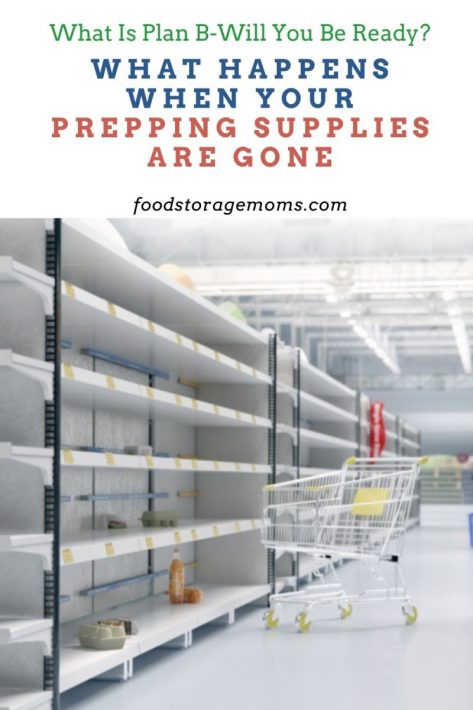
Know How to Grow Your Own Food
You can prep all day long, but the truth is, if we get to a point where we can no longer buy things from the store, we have to know how to take care of ourselves as best we can. First, learn how to grow your food from seeds! In fact, you NEED to start stocking seeds, and continue stocking them with each new harvest.
Buy seeds from SeedsNow
Now is the perfect time to start learning how to grow your own food. If you aren’t sure where to begin, check out some of my other posts below!
- Why You Need to Learn to Grow Your Own Food
- 7 Tips for Sustainable Gardening
- Dos and Don’ts for Gardening Your First Year
- Top Gardening Tools You Need
- How to Garden with 5-Gallon Buckets
- What To Plant In January
- What To Plant In February
- What To Plant In March
- What To Plant In April
- What To Plant In May
- What To Plant In June
- What To Plant In July
- What To Plant In August
- What To Plant In September
- What To Plant In October
Along with growing your own food, I would suggest growing your own medicinal plants as well! Keep in mind that if you can’t get food and water from the store, you won’t be able to get medications either. Here are a couple of posts to check out:
Learn to Dehydrate and Water Bath and Pressure Can Food
Janet reminded me about preserving our own food. Please save your money for a dehydrator and watch for used canning supplies. I’m talking about a Water Bath Canner, Pressure Canner, and a Dehydrator. Please plant a garden and learn to preserve your bounty. Please purchase one of these books NOW, if you do not have one. Ball Canning Guide or the USDA Canning Guide. I have the USDA canning guide from my Master Canner and Preserving class. PLEASE NOTE: If you have a glass top stove please do not purchase the All American Pressure Canner. It’s really heavy and may crack your stovetop. Before I purchased my All American pressure canner, I replaced my stove with a gas stove. I used a Presto Pressure Canner for 40 years, they work great.
Learn How to Find Water and Sanitize It
The two things you absolutely need for survival are food and water. You can only live 3 to 6 days without water. We can stock gallons of water all we want, but if we run out, we have to know where to get more water and how to make sure it is safe for drinking.
Next, familiarize yourself with where you can get water when you run out by reading my post “How to Find Other Water Sources in an Emergency.”
To learn more about how to make your water safe, read my post “How to Make Your Water Safe for Drinking.”
Know How to Keep Yourself Sheltered
Shelter isn’t just for sleeping. Along with your shelter, you need to know how to stay cool in the summer and warm in the winter! Obviously, if you have run out of supplies, this means you don’t really have a way of heating the inside of your home or cooling it, especially if the electricity is out.
Stay Warm
You can literally freeze to death and several people recently did in Texas when the power went out. Such a sad situation. When it comes to not having power to heat your shelter, I would suggest having a woodstove for your home and knowing how to use it! Additionally, read my post “9 Ways to Stay Warm Without Electricity,” for ideas on how to keep warm.
Stay Cool
Likewise, you can end up with heat exhaustion or heat stroke which can be life-threatening when it gets very hot. The key to summer is making sure you have found a water source and stocked water for the summer in your home. In addition, here are “10 Ways to Stay Cool Without Electricity.”
Check out some of my shelter posts below for ideas:
Be Able to Cook Over an Open Fire
If you run out of prepping supplies, you are going to need to improvise. This means you will have to use what the Earth gave us to start a fire, such as sticks, twigs, grass, and fallen trees. You may also need to know how to use an AXE and a HAND SAW to cut it up. If you aren’t sure how to cook with an open fire, check out my post, “Open Fire Cooking 101.”
Learn How to Hunt
Most states have wildlife that is available for hunting. That may include deer, elk, ducks, turkeys, geese, and other birds and animals. The states require you to get a hunting license or permit and they have hunting “seasons” with limited permits so the wildlife isn’t depleted or hunted when they are the most vulnerable. The states also have guidelines as to the sex, size, or variety available to be hunted since some species are protected.
You shouldn’t expect to just grab your gun and head out. In many states they have areas or regions set aside for hunting the various types of wildlife. You also need to take hunter safety classes to get your permit, and those classes and permits might have limitations based on age. You also need to plan out places to base camp if staying overnight, food, water, and shelter are important. You also need proper clothing, not only to stay warm, but also as a safety feature with bright colors if deer hunting so you won’t be shot at, or camouflage so the wildlife won’t be as prone to see you.
The proper type of gun is critical, and be aware, right now ammunition is hard to find. Mark used to say hunting was fun, until you actually shot something. Once you are successful in shooting the prey, you now need to dress it out, transport it to your car or truck, and then haul it home for proper butchering. You may not be able to find a local butcher available during an emergency, so learning how to do it yourself could prove critical.
The care of the meat and how to cook it is pretty specific to the type of bird or animal you’ve shot. Cooking venison (deer meat with its “gamy” flavor) is different than cooking up elk which is very similar to regular beef. Take some classes so you’re well versed in prepare the meat in a way your family will enjoy.
Take up Fishing
We have two really nice reservoirs within a 15-minute drive from our home. Quail Creek is fairly deep and supports a variety of trout. Sand Hollow is larger but more shallow. It is considered to have some of the best bass fishing west of the Mississippi. Mark and his buddies have spent some wonderful days on the water at Sand Hollow. He talks about his fond memories of time spent not only catching the bass, but also his cherished friendships.
Just like with hunting, states require licenses or permits to catch fish. They also establish “limits” so you don’t overfish any local fisheries. Personally, I’m not very fond of fish. I don’t mind the flavor too much, I’m just nervous about the bones I’ve bit into in the past. I’ve told Mark to catch and release the fish he catches, but in an emergency situation you can bet I’d be happy to see those “lunkers” in a frying pan. Mark has had a fishing license since he was young when he hit the lakes, rivers, and streams here in Utah. Hopefully you have some water sources close by your home that could provide some meals for your family.
Just like hunting, you’ll need proper fishing gear, like poles, line, and the proper bait or lures to catch the varieties of fish nearby. You may want to consult a local sporting goods store and talk with their fishing gurus about local fishing options and what you’ll need to be successful. Plan to spend some time on the water learning the nuances of fishing for different species. Always plan ahead and make sure you are dressed for the season and weather you’ll experience. Be particularly careful if you take your kids. They love to be around water, but water can be deadly if not treated with respect and caution.
Please be aware if the winds start coming, get off the lake ASAP. It’s a good idea to check the weather before taking your boat out if you have one.
Make Your Own Stuff
Food, water, and shelter are a must, but you also have to think about the fact that you may need new clothes, shoes, etc. I think it’s really important to know how to sew and make clothing. You can also make other things such as reusable toilet paper. Shoes are going to be a hard one. There really isn’t an easy way to make your own shoes. My suggestion would be to stock up on a variety of boots and shoes of various sizes (if you have kids). However, if you would like to learn how, you can check out, “How to Make Shoes,” by WikiHow.
What Happens When Your Prepping Supplies are Gone?
Final Word
The key here is to know how to be self-reliant. What Happens When Your Prepping Supplies are Gone? You want to know how to find, grow, and cook your own food. Make sure you know how to find and sanitize drinking water. And, know how to make your shelter survivable no matter what the temperature is outside. Obviously, if you run out of prepping supplies, it won’t be a matter of being comfortable, but a matter of surviving. Do you know how to survive? Let me know in the comments below. May God Bless this world!
Copyright Images: Empty Grocery Store AdobeStock_326009297 by Corona Borealis



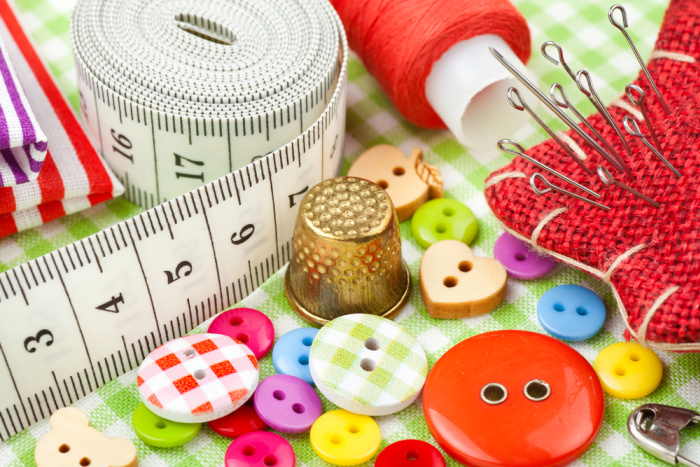
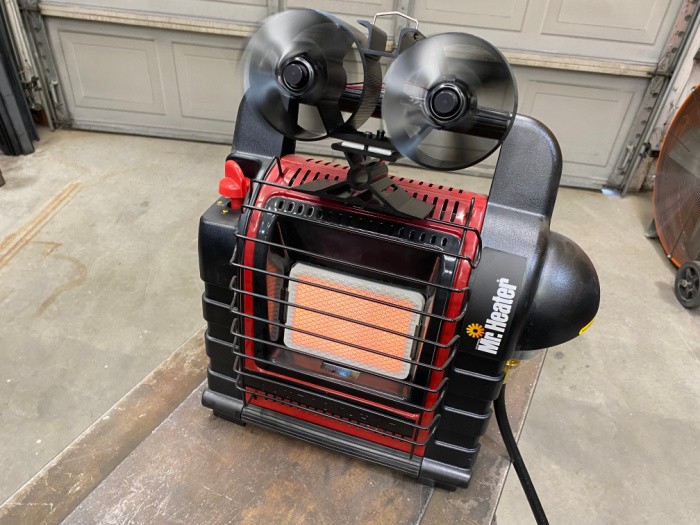
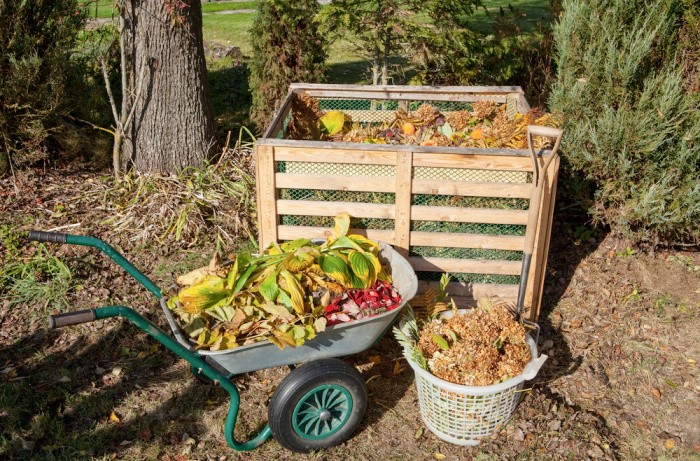

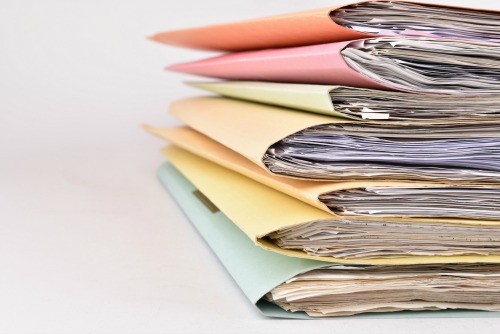
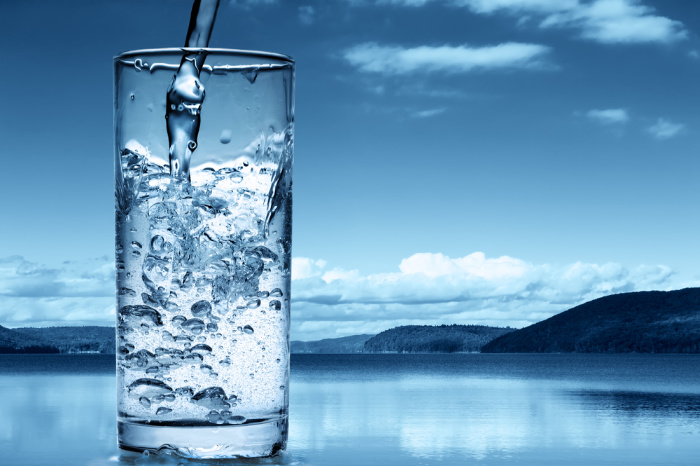
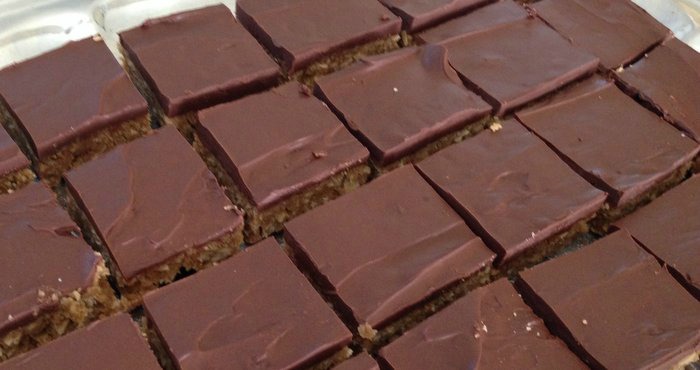
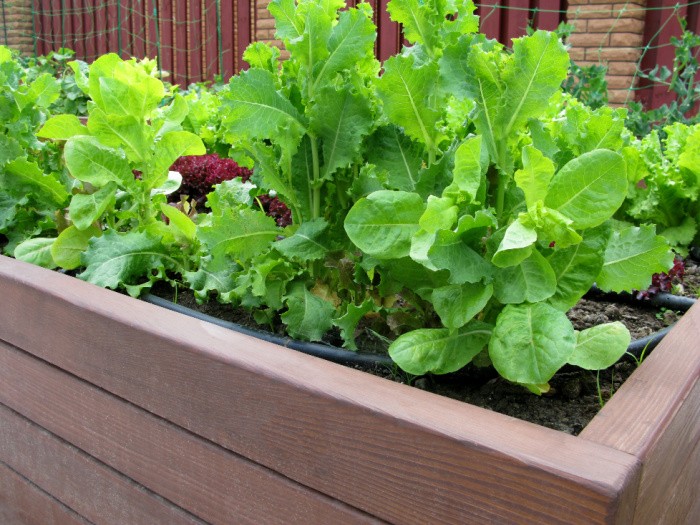
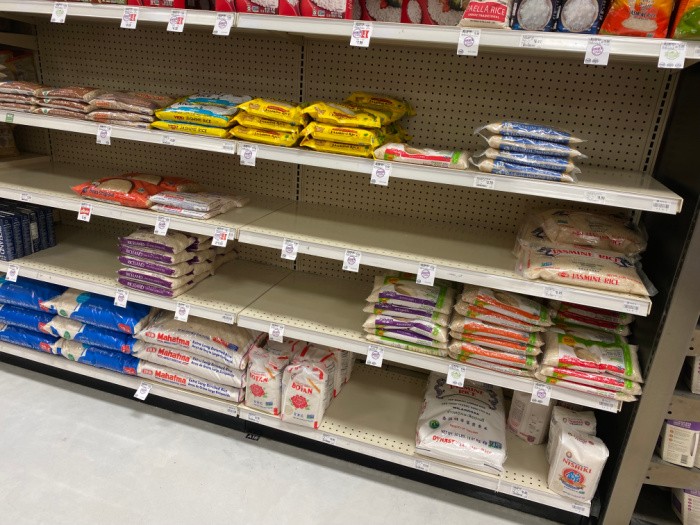
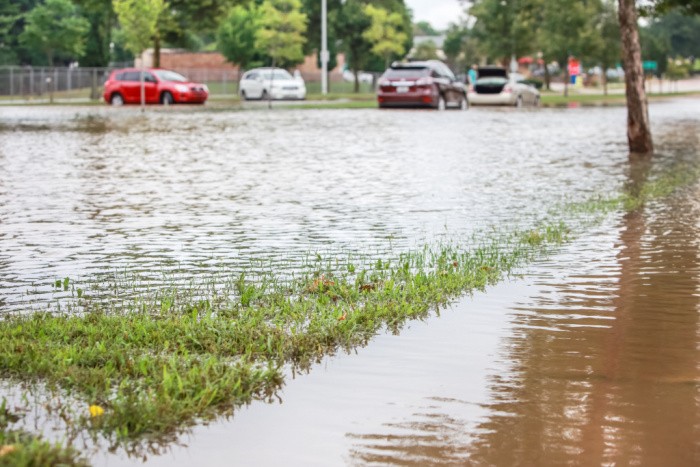

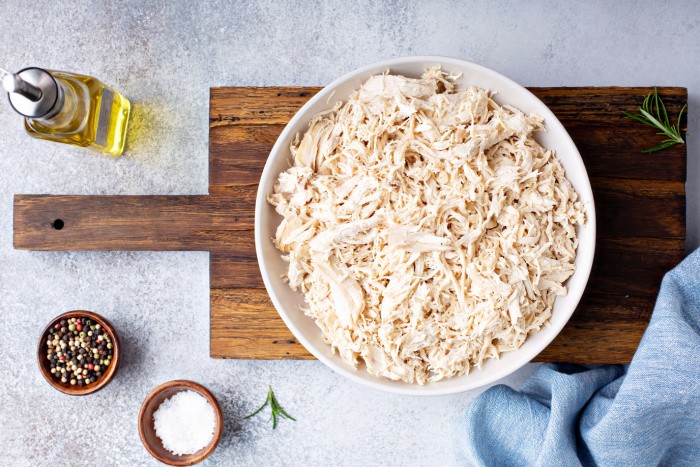
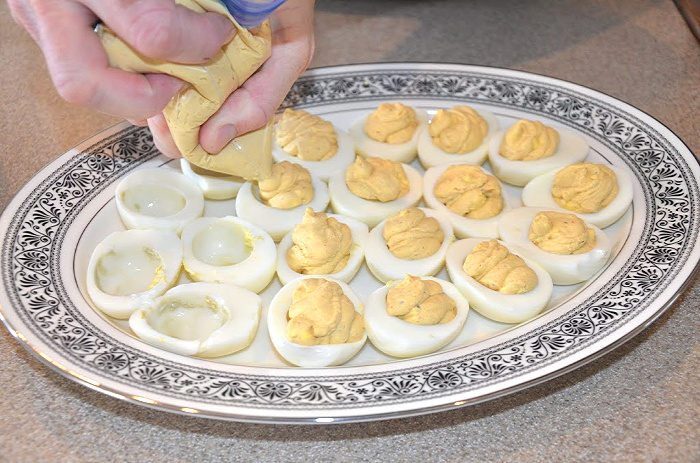
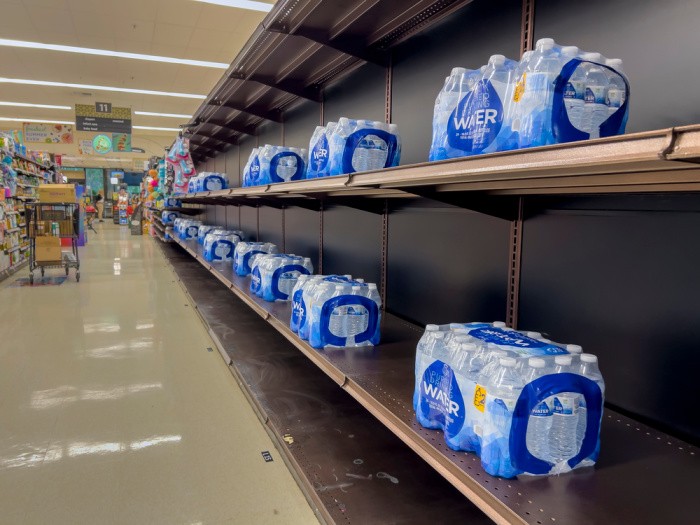
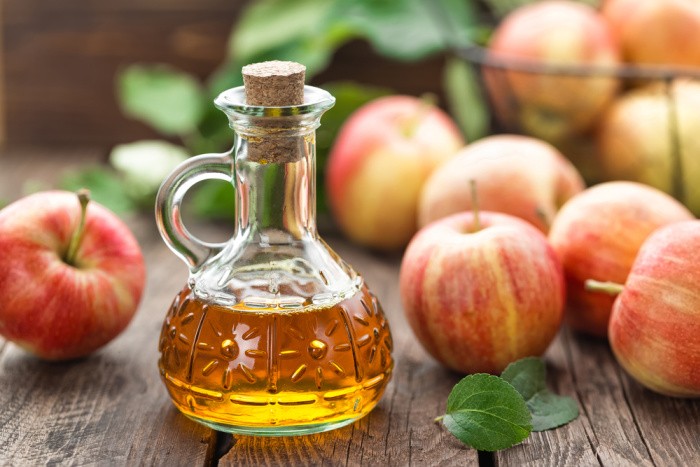

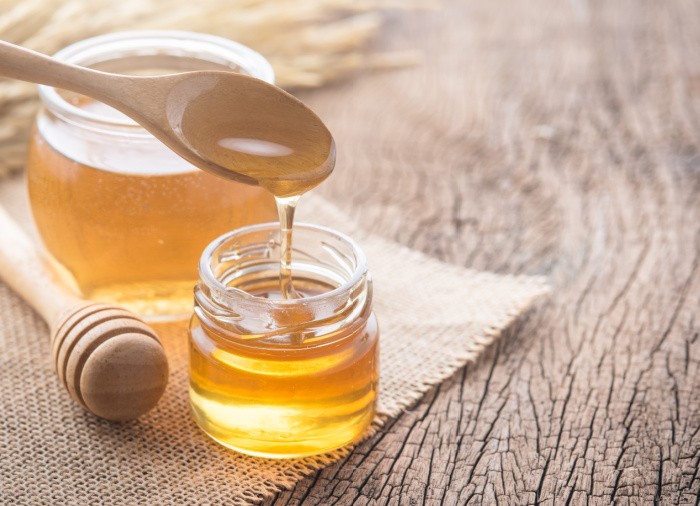
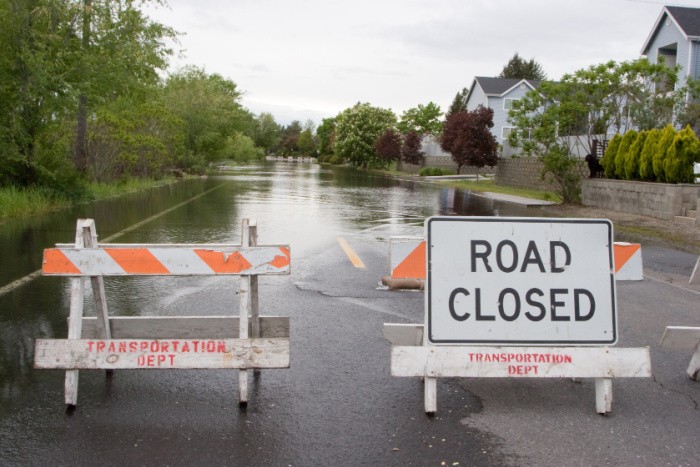


Thank you so much for all your amazing information. In the colder states like mine, house pipes will freeze and break In the winter without electricity to heat them. Is there a remedy for this possibility?
Hi Linda, thank you for your kind words. You know frozen pipes are my biggest worry. I NOW live in the desert but we had a really bad freeze a few years ago. Several homes around me are second homes. Luckily we have keys to their homes. I call them (before I ever go into their homes) and mentioned to them neighbors had frozen pipes. I shared my portable heaters with a few families. My pipes didn’t freeze. BUT, I knew to open the OUTSIDE wall cupboards wherever there was plumbing. I rushed to all the neighbors and opened all their bathroom or kitchen cupboards on outside walls. I also turned their heat up. NOW, if we lose power (our furnaces are gas here), we will have a problem. Most of my family lives where there is snow in the winter. Some have fireplaces but that won’t heat their homes enough to stop frozen pipes. We can always let the faucets drip (a slow drip) to keep the water running through the pipes. It’s hard when people build homes with tall ceilings, it’s an accident waiting to happen for COLD rooms. Stay safe, Linda
I’ve lived in the frozen North for many years. While we had electricity, we never did have running water. While I didn’t have piped in water, I sure learned a few things from other home owners.
When I moved back to Oregon I ended up in a place where the winter’s can get to 10 below zero and sometimes colder. One of the things I learned while living in Alaska, was to wrap those pipes in about 6″ worth of insulation. Then wrap that insulation with duct tape.
Another form of insulating I used was to build a wooden box around the pipes after the thick insulation was applied.
Usually the heating stove would be enough to keep the chill of the water pipes because being so cold, the stove was running hard.
Any skirting on mobile homes were super insulated as well.
If you have electricity, you might consider using a clip light and place a small wattage light bulb under the vulnerable parts of the waterpipes. I placed a light where the water came into the house and another light where the water pipe was at the other end of the house.
Cheap insurance everyone. It might cost a few dollars, but frozen pipes are way expensive to replace.
Hi Mae, excellent tips! We all saw the news after the Texas snow/ice storms, what a mess for those families. Ceilings falling down, water everywhere, what I saw on TV I have never seen in person. I have seen flooding, and have helped many times with sandbagging and shoveling mud out of homes up north. But the plumbing in the ceilings in Texas??? I called a builder and asked why would a builder put plumbing in the ceilings. His answer, it’s cheaper. You are so right what you mentioned, is cheap insurance. Linda
If you don’t have electricity to heat just drain your pipes until you do or open your lines so there is room for expansion. You can also purchase foam pipe wrap made for pipe lines. Put it on and tape the seams. We’ve put this on all our pipes. It keeps the cold water line from sweating in the summer and dripping all over the place and the hot water line from cooling off to fast. Open the cabinet doors so you have air circulation on your pipes.
Hope this helps you.
Hi Mary, great comment, I love it when others share ideas because we then think, oh yeah!! We need the tools (skills) to survive as you mentioned to protect our pipes. I love it, thank you! Linda
One thing I think everyone needs to know is how to preserve food. Canning and dehydrating are skills everyone should know. It could keep you full. Canning over an open fire is tricky, but it could help you stay alive.
Hi Janet, I agree, I need to go add that. I take for granted people have the supplies and the skill to can food. I’m going to go add that, thanks for the reminder. I grew up canning, so it’s a way of life for me. But people need to be reminded to be prepared to preserve their food. Stay safe, Linda
Linda, great post as usual from you. If we don’t grow our replacements from our pantry, we starve. Or learn to forage, which we all need to know what’s OK to eat and what’s not. We live about half a mile from the lake. I know how to sanitize it, and also have a small stove top still for distilling water. Of course it will be strained and all before it’s distilled.
I’m lucky that I have pressure canners, a water bath canner and 2 dehydrators. Not expensive ones, but they work. I have dehydrated tomatoes and made tomato powder. The powder can be used to make tomato juice, sauce, paste and soup. If you leave some chunky, when rehydrated you can have stewed tomatoes. I do love my dehydrators. And Canners!
HI Deborah, I love hearing you are so prepared. I add my sliced dehydrated tomatoes to my salads in the winter. They taste like candy, in a sweet way. We eat them like snacks. I just hope people realize they need to prep big time. Garden big time. Preserve big time. If we can’t get lids for canning, we can dehydrate our harvest. Life is good. Linda
I would like to add to this excellent article:
how would you cook? Keep warm in the winter? You MUST have a supply of fuel no matter what you use and I am now hearing for about 10 years worth. No kidding. No one has that kind of storage space so please consider installing a wood cook and heating stove of some kind.
That also includes a HUGE supply of dry firewood AND the tools to be able to harvest the trees, haul it to your home, and be able to cut the trees into firewood. Or be able to barter for the firewood.
Either way if you are going to utilize wood, you must have the tools to do this with. Buy those tools NOW and get The best quality you can. However, expensive doesn’t mean quality. Check out the reviews on Amazon and possibly Ebay. You might also ask the people who sell the firewood. They harvest and deliver firewood for a living. Valuable resource there.
Thank you Linda
Hi Mae, you are so right, if people live where they can have a wood-cook stove, please get one. And a good chainsaw. Mae, it’s crazy, I was writing a post on cast iron pans and oh my gosh, the prices of everything have gone sky-high. I can only imagine the price of wood-burning stoves. They will not allow them where I live because of fire dangers but when the SHTF, I would have to use it. We can stay warm or somewhat comfortable, where I live in the desert. Ten years does not surprise me at all. Great comment, Linda
Hi Mae! I’m curious where they’re saying we should store 10 years worth of fuel. Wow! I’d like to read more info about this, thanks!
All of this is good and is the start of the plan and not for when the supplies run out.
It’s like starting a fire where rather than use a lighter or a fire steel I’d use a magnifying glass or the fresnel lens setup I’ve got so I’m not using non renewable resources.
I’ll cook on the open fire on good days and save the propane, butane and electric for later.
Hi Matt, good point. I have a couple of years worth of dry fuel, but then I don’t have a fireplace. I have several ways I can cook food outdoors, I hope this post today rings a bell for those on the fence who need a little nudge. Or a big nudge to be prepared. It’s all about using less fuel and eating meals using the least amount of fuel. Or no fuel at all. Having more than one can opener should the first three fail. It’s the skills you and I have taught our kids and grandkids that will help them survive most anything. You have a ton more skills than me but we are both self-reliant. Great comment, Linda
Great article Linda! God bless you for all the information you provide!
We are fairly prepared for water purification & the other things you discussed.
I am planting things that not only heal or feed us, but could help keep livestock fed & healthy. And things that can survive with minimal care. Right now that’s mainly sweet potatoes & Jerusalem artichokes or Sunchokes. I have Roselle that I’m hoping the chickens will enjoy, as well as Malabar Spinach.
I will be planting more turnips, carrots this fall & trying sunflowers, amaranth & millet this summer. I have a huge rosemary bush, a large container of parsley & another of mint. Hope to finally get thyme & oregano to grow. Would love to add a couple stacks of mushroom logs if I can figure out a good spot for them.
I have a lot of earthworms in the raised bed gardens, as well as in my large container beds. In a pinch, the worms could help feed the chickens. I saved an article from another gardening source this morning on building a very simple 3 bucket worm compost system that I will try , both to increase the worms available for adding to new garden beds, feeding poultry & to create earthworm castings to fertilize the garden beds.
I added a clump of native yellow plums to the pasture woods , added more fruit trees & berry bushes in the big garden.
We are making sure we have extra hand tools of all kinds, from hammers & saws to post hole diggers to axes, scythes. We also have a fair supply of extra batteries for the weedwhacker & construction tools…. circular saws, drills, impact drivers etc we use for larger repairs & projects.
Will be trying my hand at dehydrating some of the garden harvest this year. And pressure canning. Hoping my daughter in law will be able to help so we can learn together.
HI BDN, you will have so much dehydrating and canning with your daughter-in-law! It’s actually fun when you have a partner doing it together. I love it! Linda
I knw how to gut and dress chickens and deer. Blood doesn’t bother me, I began hunting with my Dad when I was about 10. He also taught me to shoot a gun and I am good at it as most women are. We have found that out when people come to play paintball on our field. Since we raise chickens, it is something I get a lot of practice at. Growing a garden has been something we have done for years. I also preserve what we grow or get at a local grower in our area. It takes practice, but saves money and is well worth the time. Cooking on a campfire is wonderful as well. When we moved into our barn that we converted to a house, our 4 kids learned how to do all the work with us from cement for the garage up through the roofing. Sheet rock and insolation was the worse . Now they can handle even most of the electrical problems they have except the boxes and house rewiring . Pays to teach our children!
Hi Cheryl, I agree we have all taught our kids to build basements, wiring, sheetrock, moldings, floorings like wood and tile. LOTS of tiles. We all worked together to save money and our kids to this day have great memories. It’s hard for us to pay someone to do something we can do ourselves for a fraction of the cost. BUT, we’re getting older now…I would love to see your house that you converted from a barn! I love stuff like this! Cooking outside is the best! Linda
had to laugh, if I can’t make clothes i could go naked and I won’t have to worry about a gun. to
protect my self. NO ONE wants to see all of this naked!!!!!!
All kidding aside this is a great article. I can do most all the things you have listed. Need to work on the others.
Hi June, this is so funny you would mention this!! If it ever gets too hot here, I will wear my swimming suit in the house with the blinds shut. I Have the giggles, I love your comment, it made my day! Linda
I’m hanging on to my treadle sewing machine and with my fabric and supply stash I’m good for many years. It’s also good to have a supply of hand tools for various purposes. A chainsaw is nice but a good two person saw or decent bow saw can be useful even when there’s no fuel to run a chainsaw. Also a lot quieter. It’s amazing how far the sound of a chainsaw can travel on a clear, cold day. (Also depends on how loud your cussing is when using hand saws!) Books on how to build basic technology are good too. Small water or steam powered engines to run things mechanically would be handy, depending on how bad things end up.
Hi Alice, I’m glad you mentioned this, chainsaws take a lot of maintenance, cleaning, and oiling. We used to go get logs every year up in the mountains with our girls. We heated our whole house with wood and coal for several years. The chainsaws are very loud!! You are so lucky to have a treadle machine, I love hearing this. Having a stash of cloth is awesome! Linda
They sell these dandy little camping solar panels that run a generator or to store in marine batteries. They are (when fully opened) about the size of a picnic table. You can run a sewing machine, cool a small refrigerator and make coffee. It’s a pretty minimal investment. You aren’t going to run your house. But it’s nice for the smaller electric needs.
Hi Hazel, I have one that will run my Bosch bread mixer and wheat grinder. It will not run my frig or freezer but that’s okay. I will survive with what I have. Yes, we can cool a small frig and make coffee. Life is good! Linda
your stored supplies are your hedge until your total self-sufficiency plan kicks in fully – the very second you realize that the SHTF is serious >>> you need to kick it into overdrive – AKA === a mysterious previously unknown disease breaks out that crossed over from animals – this was circulating in January 2020 about Covid ….
Hi Illini, you nailed it, our supplies are truly our hedge over others! Great comment! Linda
It’s because we are about to enter a really bad depression. The last great depression lasted about 10 years. I remember, as a child, the adult’s saying we needed a “little bit” of food and water stored up. Most people at that time, had a source for water, usually a spring on a neighbor’s property, and almost all of the women canned.
Now, we have a population that lives in cities with absolutely no access to water, should the power go out and food storage is at the grocer’s. Add to that situation, no survival skills either. Dangerous situation to say the least.
Then, as I became an adult with children of my own, it was “1 Year”. Then just about 5 years ago, I heard 5 years. NOW it’s 10 years because we are about to go through a really bad time and that’s about the average a bad depression lasts.
Stock up as much as you can. Buy and store seeds. Don’t freeze your seeds unless you are told right on the package, to do so. Keep your seeds cold, dry and dark. SAY NOTHING ABOUT THIS TO ANYONE.
Read and learn as much as you possibly can. The storage that’s between your ears is the best insurance there is.
Stay safe everyone and Prep On.
HI Mae, I think we are headed for hard times as well. I hope people are prepared for what is coming. Ready or not it’s coming. God bless us all. Linda
A couple of things that I just purchased: a Jackery power bank and solar panels. Thanks to whomever noted the sale on the power bank on FB!!
I saw a FB post a while back that said, “I am not homeless, I am houseless.” – It reminded me of something I told my mother once – as long as I have a tent, I won’t be homeless. Well, now I just think that I will be houseless (apartmentless!!).
All of the skills noted in this post are critical. Keep up the good work, Linda Loosli!
Hi Leanne, I love hearing this! I’m so glad that person shared that Jackery power bank on FB! Thank you for your kind words, my friend! I loved the pictures you shared on FB about your survival skill community! WOW WOW WOW! Linda